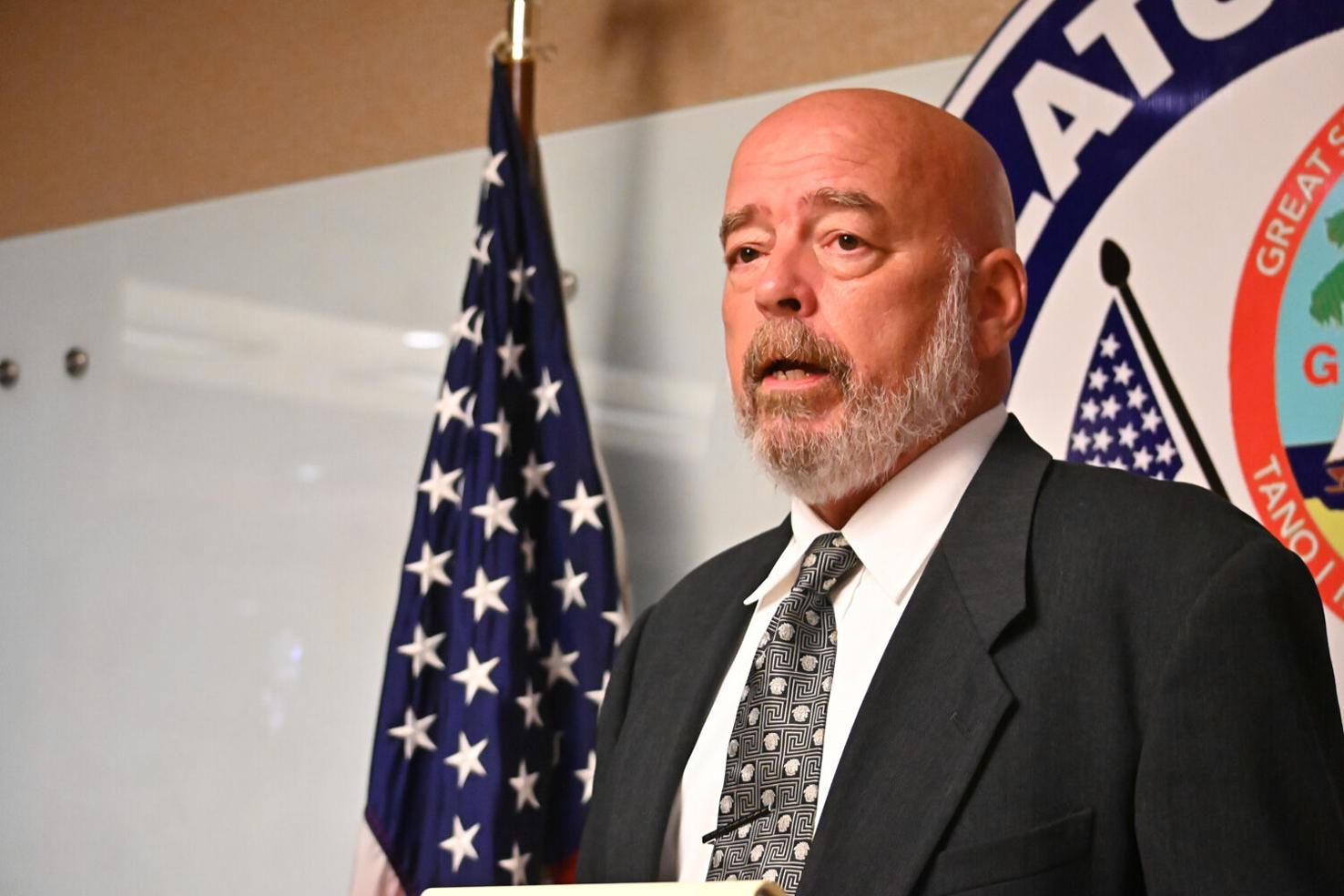By Tim Rohr
Following are some thoughts and questions relative to the article titled "'Be prepared': Bill 106 would let voters decide on abortion" as published in the Guam Daily Post on May 2, 2023.
I.
Bill 106-37 was recently introduced by Senators Tom Fisher and Tina Muna-Barnes. Since the effect of their bill is to send the abortion issue directly to the voters, the senators have nicknamed their bill "The You Decide Bill."
Given the nickname, voters may think that they are voting for or against abortion. They are not. Assuming that the Fisher-Barnes bill gets through the legislature and is enacted into law, voters will vote directly on what Fisher and Barnes have titled THE HEALTH PROTECTION ACT OF 2023 ("The ACT").
If The ACT passes, then abortion is legal in Guam. If The ACT doesn't pass, then abortion is legal in Guam - since it already is. The only difference is The ACT will strip away Guam's few existing abortion regulations, which are not enforced nor policed anyway. So there is really nothing for the voter to decide.
II.
Then, of course, there is the matter of the false name of The ACT. It would have been nice if its sponsors had titled their legislation what it really is THE ABORTION PROTECTION ACT OF 2023, or if that's a little too truthful then maybe a title with the words "reproductive rights" in it - even if the object of The ACT is to terminate reproduction and not protect it.
There's still time to fix it. And this is where our "pro-life" senators can step up. They won't have the votes to sink this ACT altogether, nor the same ACT as introduced by Senator Will Parkinson (Bill 111-37), however they can move to amend the name to call it what it is.
Such a move will provoke immediate objections from the pro-aborts and this is what we want. We already know who is pro-abortion and who isn't. But it would be even more telling to see which senators want to hide the true intent of the legislation behind a completely false title. For if abortion is really healthcare, which they tell us it is over and over, then why not happily and proudly stand by the word "abortion?" Of course, we know why.
III.
The Post story reports:
He said it wasn't easy concluding that the public should be the ones to decide the abortion issue, but added that it felt necessary, as the Guam Legislature has not proven itself to be "particularly adept at resolving the question of reproductive health or abortion rights."
Beyond Fisher's beating up on his colleagues, the Guam Legislature has not HAD the opportunity to prove itself "adept at resolving the question of reproductive health or abortion rights" since no abortion legislation has come before the Legislature since the issue, via Dobbs, was returned to state legislatures, including Guam's.
If Fisher is referring to pre-Dobbs legislation, then the Guam Legislature has proved itself to be very "adept" at handling the question because those measures were thoroughly vetted, passed, and enacted into law because not only were they constitutionally compliant, they were common sense and humane. They are as follows:
- Parental consent for minors for abortion
- Informed consent for women seeking abortion
- An abortion reporting requirement
- A ban on partial-birth abortion (a procedure in which a child, already fully delivered except for her head, is stabbed in the base of her skull whereupon her brains are scrambled and her skull is crushed and then fully delivered).
- A requirement to provide normal medical care for children who survive a failed abortion
If Fisher and Barnes have their way, then all of the above will go away:
If approved by voters, the Health Protection Act would supersede existing abortion laws on Guam, according to Fisher.
IV.
The Post reports:
...the Health Protection Act allows the health care provider to determine viability - the point in which a fetus can survive outside the womb with or without support - and prohibits limitations or restriction to abortions prior to fetal viability.
Roe set "viability" at 28 weeks. Twenty years later, the Court in Casey acknowledged that new technologies had moved "viability" to as few as "23 or 24 weeks." And now, more than three decades after Casey, "preemies" are surviving and thriving outside the womb at 21 weeks.
A baby born at 21 weeks gestation in Alabama last year is the most premature baby in the world to survive, according to Guinness World Records. - SOURCE
V.
The Post reports:
The senator stated that the public would essentially decide on whether to codify a version of Roe v. Wade and Casey v. Planned Parenthood, the landmark cases that once protected the right to an abortion in the United States.
Fisher contradicts himself. Casey upheld parental consent for minors, informed consent for women, waiting periods, and reasonable reporting requirements, all of which are current laws in Guam. Fisher himself says that all of these will go away:
If approved by voters, the Health Protection Act would supersede existing abortion laws on Guam, according to Fisher.
Fisher and Barnes do not want to codify Roe and Casey. They want absolute, unrestricted, and unaccountable freedom to abort. Given what Fisher and Barnes really want, they should be thankful for Dobbs which got rid of Roe and Casey and gave the ultimate power to abort to people like Fisher and Barnes.
VI.
The Post reports:
He went on to discuss how the Dobbs decision may also put case law protecting interracial marriage in danger because it was founded in the Fourteenth Amendment, like abortion had been.
Fisher is stretching the intelligence of his listeners here. But rather than refute Fisher, I'll let Justice Alito do it:
...the Due Process Clause of the Fourteenth Amendment...has been held to guarantee some rights that are not mentioned in the Constitution, but any such right must be “deeply rooted in this Nation’s history and tradition” and “implicit in the concept of ordered liberty.”
The right to abortion does not fall within this category...The abortion right is also critically different from any other right that this Court has held to fall within the Fourteenth Amendment’s protection of “liberty.” Roe’s defenders characterize the abortion right as similar to the rights recognized in past decisions involving matters such as intimate sexual relations, contraception, and marriage, but abortion is fundamentally different, as both Roe and Casey acknowledged, because it destroys what those decisions called “fetal life” and what the law now before us describes as an “unborn human being.”


No comments:
Post a Comment